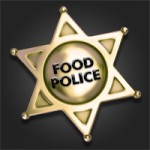 All the rage from the Food Police recently has been that so-called “processed foods” are stealth assassins shortening the lives of Americans. But as David H. Freedman points out this week in The Atlantic, the foodie world’s so-called “wholesome foods” may in fact be just as bad.
All the rage from the Food Police recently has been that so-called “processed foods” are stealth assassins shortening the lives of Americans. But as David H. Freedman points out this week in The Atlantic, the foodie world’s so-called “wholesome foods” may in fact be just as bad.
To get the perspective of the anti-processed food movement, Freedman consulted foodie figurehead Michael Pollan of the University of California at Berkley. “The food they’re cooking is making people sick,” Pollan charged. “It is one of the reasons that we have the obesity and diabetes epidemics that we do … If you’re going to let industries decide how much salt, sugar and fat is in your food, they’re going to put [in] as much as they possibly can.” His solution? Utilize public education and regulation to eventually eliminate all processed foods and replace them with unprocessed, organic alternatives. (In short, let them eat kale.)
But as we have written before about the recipes that made Pollan’s ideological ally Mark Bittman’s name, unprocessed food can have a boatload of calories too. Freedman found similarly. For example, take Freedman’s visit to Whole Foods, where he found a product called Vegan Cheesy Salad Booster:
[The] package emphasizes the fact that the food is enhanced with spirulina, chlorella, and sea vegetables. The label also proudly lets me know that the contents are raw—no processing!—and that they don’t contain any genetically modified ingredients. What the stuff does contain, though, is more than three times the fat content per ounce as the beef patty in a Big Mac (more than two-thirds of the calories come from fat), and four times the sodium.
The fact that a food has been processed, in and of itself, has nothing to do with weight gain or obesity. The calories in your food and that you use for exercise, not whether food ingredients went through a machine, dictate weight gain and obesity. In other words, for the purposes of eating healthily, it doesn’t matter whether your food comes from industry or straight from the ground – if you consume excessive amounts of calories it can lead to obesity.
The most shocking assertion from the Food Police in Freedman’s article though – and one which illustrates their utterly-divorced-from-reality mindset – comes from one Lisa Powell, a professor of health policy and administration at the University of Illinois at Chicago’s Institute for Health Research and Policy. When asked whether the availability of more healthy food options would also make them more palatable, Ms. Powell opined, “If the government came into these communities and installed Brita filters under their sinks, they’d drink water instead of Coke.” To borrow a line from Billy Madison, everyone who read that statement is now dumber for having read it. Indeed, most people can find filtered bottled water in the same stores for the same price as the soft drinks they often choose instead.
All of this then begs the question: If processed food is no worse for your health – and in many cases is better – than “green” foods, then why do Pollan and his devout followers continue preaching otherwise? Is their anger really about the food, or is it actually about who makes it?




